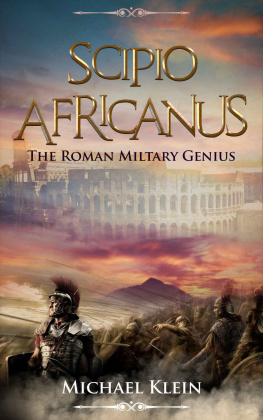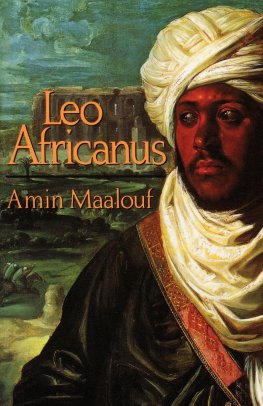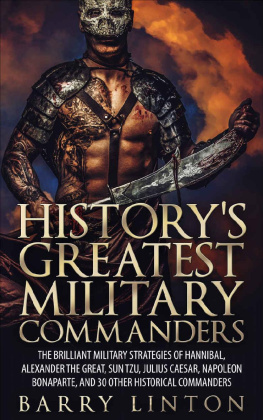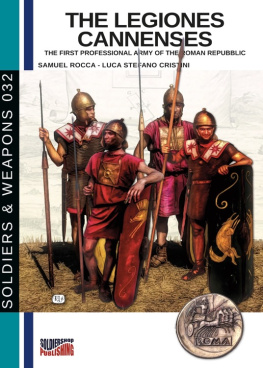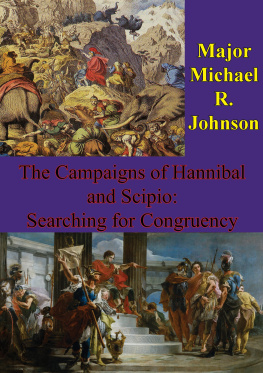Scipio Africanus:
The Roman Military Genius
By Michael Klein
Copyright 2016 WE CANT BE BEAT LLC
Table of Contents
Foreword
Publius Scipio Africanus the Elder and Hannibal Barca were major players in the Second Punic War known to Romans of the day as Hannibals War. However, neither the conflict or the family histories began with the Second Punic War. In fact, the Punic wars grew out of territorial disputes between the two leading powers of the day, the Phoenicians and the Romans. The Greeks, Egyptians and Syrians were also players in these events, but they were the supporting cast, so to speak, in these episodes.
Carthage, the great Phoenician city (the word Punic derives from the Roman word for Phoenician) was founded around 814 BC. Settlers from Tyre claimed the land, and constructed the sea port. The area was fertile, and many of the settlers farmed the land surrounding Carthage. Others continued to carry out the ocean voyaging and sea trade for which the Phoenicians were famous. It should also be noted here that the Phoenicians are the same people as the Biblical Canaanites.
Meanwhile, elsewhere in the world, the people who would become Romans were having their fair share of difficulties. There are a variety of stories about the founding of Rome, including the familiar story about Romulus and Remus, the twins were reared by wolves and who founded Rome on two hillsides. Archeologists and anthropologists are by no means in absolute agreement on the origins of the Roman people, but there are some stories that are fairly consistently mentioned.
One of these stories is that the Romans were actually Etruscans, and that the Etruscans came from Asia. One legend has it that in a certain kingdom, the people were starving. There was so little food that they drew lots, and people ate on alternate days. At last the situation became so bad, that this no long sufficed, so the Etruscan king used the lots to divide his people into two groups: those who would remain with him, and those who would sail away with his son to find more hospitable lands.
The son, who was named Tyrrhennus, helped to found cities on the coast of the area that is now Italy. At first the Etruscans were mostly in scattered villages, but as time went on, they clustered together more closely, forming larger settlements. They were agrarian, and they herded sheep. But they also developed a reputation as pirates. Of course, piracy was one of those words that rival cultures threw around at random, right along with immoral and indecent. The Greek city states were also developing alongside the Roman culture.
There is a high probability that there were already people living in Italy at the time that the Etruscans landed and began founding their settlements. Mention is made of other tribal inhabitants who might very well have been there before the Etruscans. In all probability, they intermarried and the cultures blended.
The village of Rome was founded around 753 BC. For several hundred years there was no conflict between Rome and Carthage. In fact, they made several treaties and did a bustling bit of trade. (We wont mention piracy here but there was probably some of that going on, as well.)
The Romans developed a society that had distinct social classes. At the top of the society were the Patricians, the founders who were the primary governing body. There was also a class called the Clients who were free, but took no part in the government. They were usually attached to one of the Patricians, or a Patron. At the bottom of the pecking order were the slaves, who had minimal rights (none) other than if they could come up with their purchase price they could buy their freedom. Also layered into this many textured society were the trades people free men who were not clients or patrons, who ran small shops or created items that were beautiful or necessary. They might also take care of certain jobs that required more decision making than could be expected of a slave. Although, many masters took the long view, and put effort and expense into educating slaves for a variety of positions, including keeping accounts, writing, and fulfilling certain positions of responsibility.
To add to this mosaic of inhabitants, there were also resident foreigners, people who had come to Rome for trade or for other reasons. And there was the multitude of general residents, often referred to as plebian. After a time, a governing body called the Assembly provided representation for the plebeians some of whom had become quite wealthy.
Each year two consuls were elected to run the city. In times of emergency, they might appoint a dictator, whose term in office was only six months. Perhaps such a person governed Rome while the consuls were in the field with the military.
Two quaestores were appointed each year to manage finances, under direction of the senate. Aediles were elected by the plebians in a section or quarter of the city and fulfilled a position roughly analogous to a policeman.
At first, many of the regulations of Rome were dictated from the top down by the Patrician, but as the centuries slid buy, the plebians gained more power and the ability to be voted into almost any office including that of Dictator.
The problems with the neighbors did not arise in noticeable form until around 265 BC, when Rome had finished conquering the Roman peninsula.
Meanwhile, Carthage had also been growing in power and influence. Its territory had grown to include the island of Sicily. It was said that the lights of the cities of Sicily could be seen from the cities that were on the banks of the Italian peninsula.
The problem switched into high gear when one of the cities on Sicily appealed to Rome for help. Of course, that was music to the ears of the Roman senate they were being invited to a conflict and they were more than happy to oblige. The only problem was that, even though the Etruscans had sailed to Rome, the current Romans were primarily land dwellers and farmers. In order to get their armies across to Sicily, they needed ships. At first they hired vessels to carry their armies across, but that proved to be less than satisfactory. The hired ships were not particularly interested in being drawn into a conflict with the Carthaginians, who were developing a growing reputation as able seamen. The Romans could fight on land, but that proved to be less than satisfactory when it came to taking over Sicily because the Carthaginians just kept landing shiploads of men and supplies from the seaward side.
Eventually the Romans did what they did best: they captured a Phoenician ship and copied it. The full story of how that all turned out is told in the second chapter of this book as a fireside tale.
In an imaginary setting, we look in on a world that might have been: Publius Cornelius telling his two young sons the story of how their Grandfather Gnaeus was captured by the Carthaginians, but was also instrumental in allowing the newly constructed Roman fleet to unload men and supplies in Sicily with scarcely a scratch.
That was the beginning of the First Punic War, and it belonged to the era of Publius Scipio Africanus grandfather. Although Grandfather Gnaeus (not to be confused with Uncle Gnaeus) was censured for his error in judgement, he was again elected consul six years later. Nor was he the first of the Cornelius family to serve Rome. They had a distinguished record as upright Roman citizens and staunch supporters of the empire.
Indeed, the Cornelius family was one of the First Families of Rome. They knew their duty to city and country, and they willingly did it. In exchange, they expected honor, respect and yes, indeed a relative degree of wealth.
These were all to be had in Rome, in those days. These were the heyday of Romes expansion. They built roads wonderful roads. Indeed, there are Roman roads that still exist today. They conquered, and they incorporated the conquered into their society.
Next page
